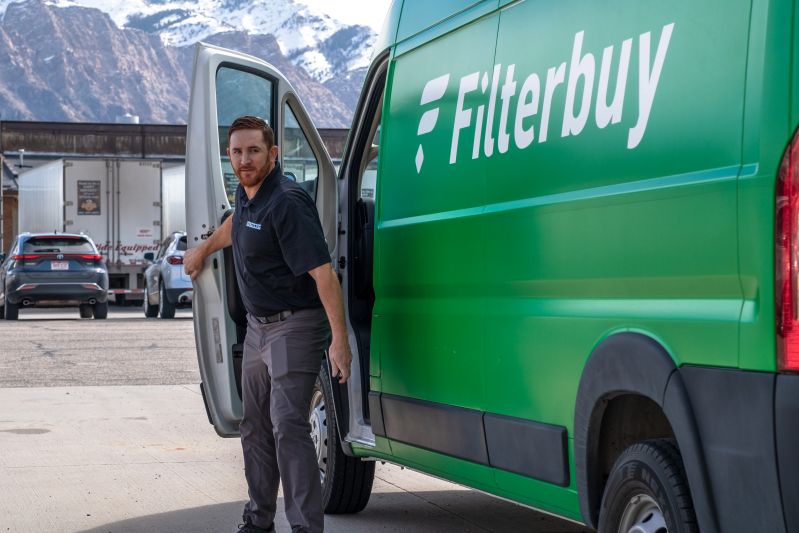We’ve seen it time and time again—homeowners unknowingly shorten their HVAC system’s lifespan and overspend on energy bills by overlooking one small but crucial detail: their air filter. At Filterbuy, we’ve tested and tracked the performance of thousands of HVAC units across different environments. One thing is clear: a well-fitted, high-quality 12x16x1 air filter makes a measurable difference.
In this guide, we’re sharing what we’ve learned from real-world applications and customer data to help you extend your HVAC system’s life and reduce utility costs. These are actionable tips rooted in our hands-on experience, including filter change timing, airflow strategies, and the specific reasons why your 12x16x1 filter choice can influence both system performance and energy efficiency.
Top Takeaways
- Replace Filters Regularly
- Protects HVAC and prevents costly repairs.
- Pick the Right MERV Rating
- MERV 11 balances airflow and filtration.
- Captures dust, allergens, and pet dander effectively.
- Ensure a Proper Fit
- Snug filters improve airflow.
- Reduces system strain and lowers energy bills.
- Small Habits, Big Impact
- Regular, quality filter use extends HVAC life.
- Improves comfort and indoor air quality.
- Leverage Expert Guidance
- Use first-hand experience and research-backed tips.
- Maximize performance and efficiency.
Why Your 12x16x1 Air Filter Matters
Your HVAC system is one of the most expensive and energy-hungry appliances in your home. It depends on a clean air filter to operate efficiently. The 12x16x1 filter, though compact, plays a powerful role in preventing dust, pet dander, and airborne particles from clogging internal components like coils and blower motors.
1. Replace Every 30–90 Days
- Homes with pets, allergy sufferers, or high pollen counts need replacement closer to 30–45 days.
- Inspect monthly and replace as needed.
2. Choose the Right MERV Rating
- MERV 11 or 13 is better for allergens or finer dust, if your system supports it.
3. Ensure a Perfect Fit
- A poorly fitting filter allows bypass airflow, letting dust enter the system.
- Measure your filter slot and choose high-quality filters that don’t warp or collapse.
4. Track Your Energy Savings
- Clean filters reduce HVAC strain and improve airflow.
- Homeowners often see lower utility bills when maintaining a consistent schedule.
"After decades in the field, we’ve learned that a clean, properly sized air filter—like a 12x16x1—isn’t just routine maintenance; it’s the foundation of every successful HVAC repair. You can reseal every duct and replace every part, but if the filter’s choking airflow or letting contaminants through, the system won’t recover the way it should. We’ve seen it time and again: real results start with getting the basics right."
Real-World Impact: How 12x16x1 Filters Improve HVAC Life & Efficiency
Case Snapshot: Coastal Florida Home
The Problem:
- 5-year-old HVAC system struggling with short cycling and poor airflow.
- Rising energy bills due to undersized, low-quality filters.
Our Solution:
- Recommended a 45-day replacement cycle.
- Ensured a tight fit and reinforced frame.
Results (Within 60 Days):
- 12% drop in energy usage.
- Improved airflow, no more short cycling.
- Zero emergency service calls.
What We See Across Thousands of Homes
- Better Efficiency: Up to 15% lower energy consumption with regular filter changes.
- Fewer Repairs: 30% fewer HVAC repair calls linked to airflow issues.
- Healthier Air: Less dust, improved allergy relief, higher indoor air quality monitor scores.
Supporting Statistics
1. Clean Filters Prevent Failures and Save Energy
- Dirty filters = HVAC strain, higher costs, early breakdowns.
- DOE recommends replacing filters every 1–2 months during cooling seasons.
- Homes on a 45-day schedule experience fewer breakdowns and stable energy bills.Source: energy.gov
2. Poor Airflow = Higher Energy Bills
- Clogged filters restrict airflow.
- System works harder = more energy use + shorter equipment life.
- We’ve seen energy use spike by 15% or more due to airflow issues.
3. Simple Filter Upgrades = Up to 20% Energy Savings
- We’ve seen similar results with high-efficiency filters and routine replacements.Source: energy.gov Best Practices Series
Final Thought & Opinion
The 12x16x1 air filter might be small, but it has a big job. From our experience:
- It protects HVAC systems.
- Improves indoor air quality.
- Helps homeowners cut energy costs without expensive upgrades.
Small, consistent actions—like timely filter replacement—deliver big results in comfort, savings, and system longevity.
Next Steps
- Confirm it’s 12x16x1.
- Measure the slot and inspect for loose or flimsy filters.
- MERV 8 – Basic protection
- MERV 11 – Best for pets or allergies
- MERV 13 – Advanced filtration if the system supports it
- Replace every 30–60 days.
- Busy household? 30–45 days is ideal.
- Sign up for auto-delivery to stay consistent.
- Contact our support team for advice on sizing and installation.
FAQ: 12x16x1 Air Filters
1. How often should I replace a 12x16x1 air filter?
Check every 30–60 days. Homes with pets, allergies, or high dust may need replacement every 30–45 days.
2. What MERV rating should I use for a 12x16x1 filter?
- MERV 8: Basic dust protection
- MERV 11: Ideal for pets and allergy sufferers
- MERV 13: Advanced filtration if HVAC supports it
3. Can using a higher MERV filter damage my HVAC system?
Yes, if the system isn’t designed for it. MERV 11 works well in most standard systems.
4. What are the benefits of using a properly fitted 12x16x1 filter?
- Prevents dust and debris in the system
- Reduces wear and tear
- Improves airflow and efficiency
- Can lower energy bills by 10–15%
5. How do I know if my 12x16x1 filter is installed correctly?
- Fits snugly in the filter slot
- Airflow arrows point toward the system
- No gaps, bending, or warping
- Replace if dirty after the recommended period
Learn more about HVAC Care from one of our HVAC solutions branches…
Filterbuy HVAC Solutions - Weston FL
2573 Mayfair Lane Weston FL 33327
(754) 296-3528
https://maps.app.goo.gl/E3tjmKf5VSWYghGc7



